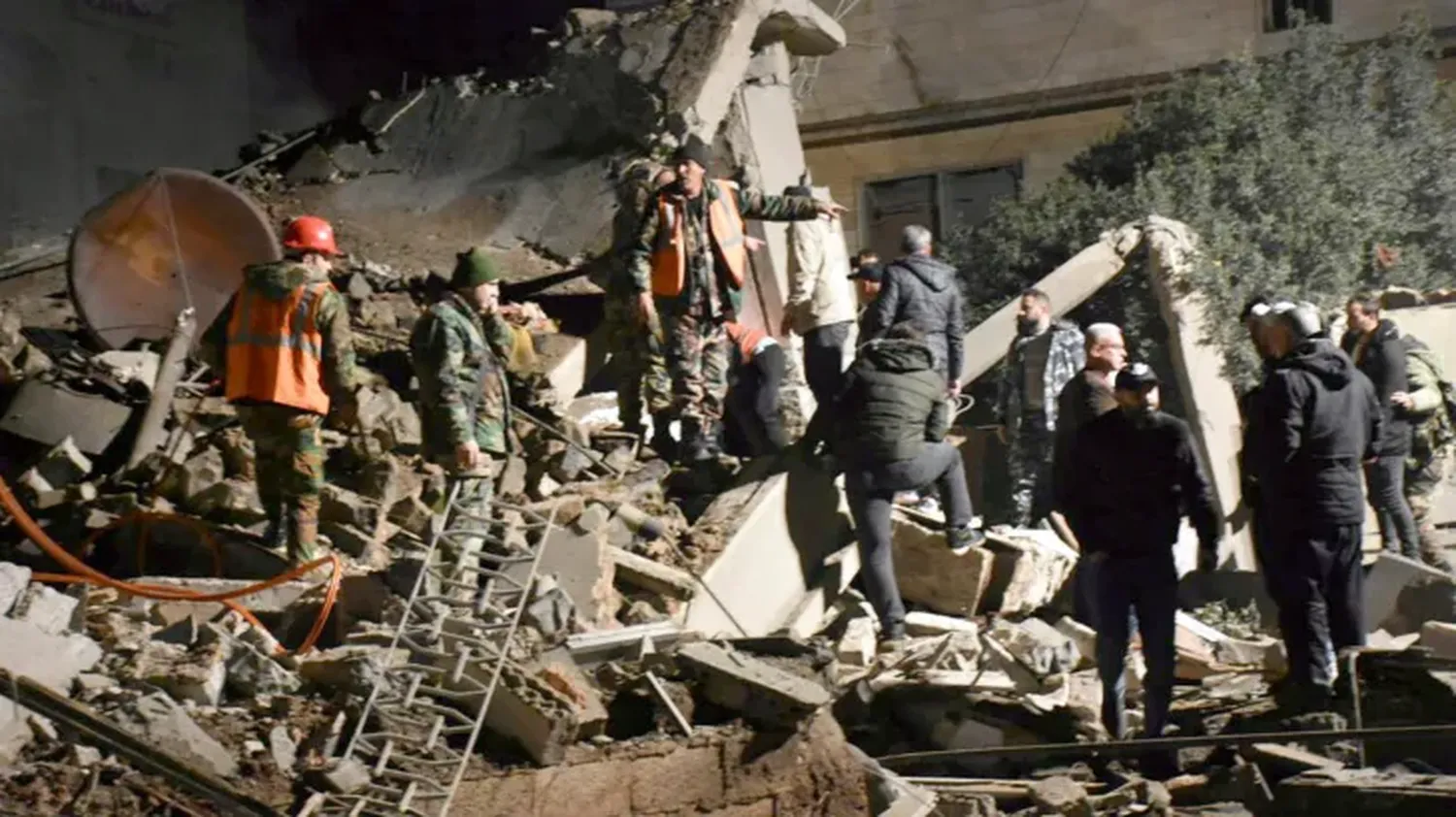Israel-Gaza War
Israel accused of killing dozens in Syria air strikes
In a significant escalation of tensions in the Middle East, Israel has been accused of conducting air strikes in north-western Aleppo province, Syria, resulting in the deaths of dozens of Syrian soldiers and members of Hezbollah. The attack, which took place on Friday, is one of the largest assaults on Syria and the Iran-backed group since the onset of the Gaza war, raising fears of a potential regional conflict.
The strike targeted an area close to rocket depots belonging to the Lebanese group Hezbollah, near Aleppo's international airport, according to the UK-based Syrian Observatory for Human Rights. The watchdog reported that at least 42 soldiers were killed, with dozens more injured. Security sources, speaking to Reuters, confirmed that five members of Hezbollah were among the deceased, putting the death toll at 38. Syria's Defence Ministry also reported that the strike resulted in numerous casualties among both civilians and military personnel.
This recent development comes amid an intensification of Israeli attacks on Hezbollah and pro-Hamas militant groups in Lebanon. The situation has escalated concerns about the possibility of the recent upsurge in violence leading to a broader regional conflict. The Syrian Observatory for Human Rights added that the strike hit an area "close to rockets depots belonging to Lebanese group Hezbollah", near Aleppo's international airport. It further stated that at least 42 soldiers were killed and dozens were injured.
The attack has drawn sharp criticism and condemnation from various quarters. The Syrian government, Hamas, and Iran-backed Iraqi militant groups Harakat Hezbollah al-Nujaba and Hashd al-Shaabi have all condemned the attacks as an escalation of aggression. Hamas described the "aggression" as an attempt to "cover up Israel’s horrific crimes" in the Gaza Strip. The Syrian Foreign Ministry warned that the attacks could "fuel conflict in the Middle East in a very dangerous way."
The Israeli government has yet to provide an official statement regarding the air strikes. Historically, Israel has conducted numerous air strikes in Syria, targeting Iranian forces and Hezbollah, which it views as a significant threat to its national security. Israel considers Hezbollah, a Shiite Islamist political party and militant group based in Lebanon, as one of its most formidable enemies. Hezbollah has a significant presence in Syria, where it has supported the regime of President Bashar al-Assad alongside Iranian forces.
The recent air strikes underscore the complex web of regional rivalries and alliances that have characterized the Syrian conflict. Israel's actions in Syria are part of a broader strategy to counteract Iranian influence in the region. Iran's support for militant groups such as Hezbollah and Hamas has been a source of concern for Israel, which views Tehran's regional ambitions as a direct threat to its security.
The incident in Aleppo province highlights the volatile nature of the Middle East, where geopolitical tensions and military actions can quickly escalate into broader conflicts. The international community has repeatedly expressed concern over the potential for these localized skirmishes to spark a wider regional war, involving multiple state and non-state actors with competing interests.
As the situation continues to develop, the international community watches closely, hoping for a de-escalation of tensions. The Middle East remains a tinderbox, where actions such as the recent air strikes in Syria have the potential to ignite a larger conflict, drawing in regional and possibly international powers into a more extensive and devastating confrontation.

